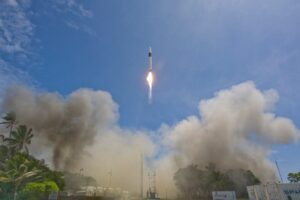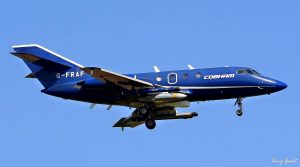Fuel economy is becoming increasingly important in the aerospace industry, due to climate and cost factors. Aerospace companies are now striving to enhance fuel efficiency in order to reduce operations costs and lessen their impact on the environment.
Engineering companies like Airframe Designs now hold an important position in optimising aerospace product design for fuel economy, and the continued safety of operators and passengers.
The Significance of Fuel Economy in Aerospace
 Fuel economy isn’t a challenge that is unique to the aerospace sector – around the world, most businesses have cutting fuel consumption at the forefront of their environmental policies, and even the general public is becoming more aware of the issues around high levels of fuel consumption.
Fuel economy isn’t a challenge that is unique to the aerospace sector – around the world, most businesses have cutting fuel consumption at the forefront of their environmental policies, and even the general public is becoming more aware of the issues around high levels of fuel consumption.
Cutting carbon emissions by reducing fuel consumption is key to slowing climate change and reducing the risk of future environmental disasters.
As a heavy consumer of fuel products, the aerospace industry is under ever-increasing scrutiny to reduce consumption. There are several types of non-renewable fuels used in the aerospace industry, and whilst flying is generally cleaner and greener than it was historically, fuel consumption is still massive.
For example, commercial airline global fuel consumption increased every year since 2009 and reached an all-time high of 95 billion gallons in 2019, according to Statista.
For the aerospace industry, there is the additional worry of rising fuel prices affecting operational costs. This affects different sub-sectors of the aerospace industry in different ways – for commercial airlines a result is rising airfares for passengers, whilst in the military and defence sector, allocated government budgets are being stretched to the max.
Whilst looking at ways to reduce fuel consumption is important, it’s also important for the aerospace industry to continually look at ways of making fuel go further. Optimising aerospace product design for fuel economy will continue to increase in importance in the coming years.
Aerospace Product Design Helping Reduce Fuel Consumption
Below are some of the ways the aerospace sector is looking to reduce fuel consumption and improve efficiency.
Aerodynamics And Efficiency
 Aerodynamics play a crucial role in aircraft fuel efficiency, by reducing drag, optimising cruise efficiency, and more. Improving aerodynamics has been a continual process for the entire history of aircraft, but we are starting to see more innovations now, particularly when it comes to rethinking wing shape and aerodynamics.
Aerodynamics play a crucial role in aircraft fuel efficiency, by reducing drag, optimising cruise efficiency, and more. Improving aerodynamics has been a continual process for the entire history of aircraft, but we are starting to see more innovations now, particularly when it comes to rethinking wing shape and aerodynamics.
Lightweight Design And Materials
Aircraft design features many different materials, particularly a lot of advanced composite materials, but improvements can always be made to ensure aircraft are as light as possible to conserve fuel.
Products that are installed into aircraft and rotorcraft need to be lightweight, yet strong, functional and safe, and depending on the function of the craft, aesthetics play a part too. This is an area Airframe Designs have extensive experience in, having installed over one hundred different product types onto aircraft.
Propulsion Systems And Fuel Efficiency
Propulsion systems play a huge role in determining overall efficiency in the aerospace industry. Propulsion systems are responsible for generating the thrust needed to overcome drag and propel the craft through the air, consuming a lot of fuel as they do so. Because the design and efficiency of propulsion systems directly impact fuel consumption and environmental performance there is ongoing development in this area.
The future of fuels in the aerospace industry is also an area of development to keep an eye on – there are many alternative and novel solutions on the table, but the perfect solution to the reduced consumption of non-renewable energy sources hasn’t emerged yet.
Integrated Design And Analysis
Professionals in the aerospace industry often look to engineering companies that can help with integrated design and analysis. Integrating design and performance analysis can optimise fuel economy, with computer simulations identifying fuel-saving opportunities, before a single part is even manufactured. This enables designers to go back to the drawing board for further optimisation to meet their clients’ goals.
Safety First
As seen from above, there is continuous innovation in the aerospace industry, with craft and aerospace product designs being updated, changed, and renewed.
Safety analysis and certification sit side by side as new products and innovations must be proven to be as safe as those before them.
Whilst fuel economy is incredibly important, safety in the aerospace industry will always be the number one priority.
The Future Of Energy Efficient Aerospace Design
What does the future hold for aerospace design? As mentioned, aircraft redesign for fuel efficiency is likely going to increase as even small changes can make a big difference in fuel consumption. But, although there are initiatives in aerospace design to make today’s aircraft more fuel efficient, it is most likely that the focus will be on the fuel itself and the development and adoption of Sustainable Aviation Fuels (SAFs).
This was discussed by Keith Bushell, UK Enviromental Affairs Stakeholder from Airbus, back at an event in 2020 on how the community could make aerospace sustainable in the long term.
In a Q&A after the event, Keith said that Airbus is particularly interested in synthetic aviation fuels for the long term but emphasised this would only work if the UK invested more in renewable energy:
“Power to liquid SAF, where electricity is used to synthesise hydrogen (which needs to come from a ‘green source’) and carbon (which could be from waste gasses or even captured directly from the atmosphere) into a synthetic aviation fuel, has the best long term potential for long range aircraft, and is therefore an area of interest for Airbus. However, to be a truly carbon neutral solution the grid needs to be de-carbonised. In the UK this will require large investment to increase the production of renewable energy.”
You can read the full interview here.
Contact Airframe Designs To Discuss Aerospace Product Design, Analysis, And Certification
Airframe Designs, founded over ten years ago offers specialist engineering services, including product design for the aviation, defence, and space sectors.
We understand that in any new design project, fuel economy will play a factor for most of our clients in the aerospace industry. If you have a project you would like to partner with us on or a problem you want a solution for, please don’t hesitate to contact us.

